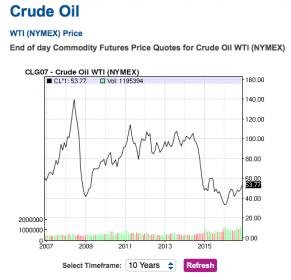I don't know much about politics, infact, i barely have any idea about it, but i do know is that economic and foreign policies play a big part for the political govts support.
Ever since PMLN's govt came into power, Pakistan's has faced disinflation. The rate of inflation has continuously decreased since 2013. Back in 2009, the country was near hyper inflation, but PMLN's govt has moved the rate of inflation near to stable inflation. Infact, Pakistan also experienced stable inflation a couple of months ago aswell.
Although i understand that while the inflation is still in the positive, the prices of products don't decrease(rate of inflation should be in negative), but the prices haven't also increased aswell.
Also, how much of a factor does the role of decreasing oil prices play here? What if the factor behind the decreasing rate of inflation is the oil prices. The cost of production decreasing, thus moving our country out of the cost push inflation due to the oil prices.
Also, seeing that our rate of inflation is at 5%, is it possible that we could see a negative rate of inflation in the near future? Could the general price level finally start decreasing?
But if the general price level decreases, will PMLN lose its support from the business community? Because stable inflation allows them to still charge high price, while deflation forces them to reduce prices. Thus, will PMLN allow deflation to take place?
Ever since PMLN's govt came into power, Pakistan's has faced disinflation. The rate of inflation has continuously decreased since 2013. Back in 2009, the country was near hyper inflation, but PMLN's govt has moved the rate of inflation near to stable inflation. Infact, Pakistan also experienced stable inflation a couple of months ago aswell.
Although i understand that while the inflation is still in the positive, the prices of products don't decrease(rate of inflation should be in negative), but the prices haven't also increased aswell.
Also, how much of a factor does the role of decreasing oil prices play here? What if the factor behind the decreasing rate of inflation is the oil prices. The cost of production decreasing, thus moving our country out of the cost push inflation due to the oil prices.
Also, seeing that our rate of inflation is at 5%, is it possible that we could see a negative rate of inflation in the near future? Could the general price level finally start decreasing?
But if the general price level decreases, will PMLN lose its support from the business community? Because stable inflation allows them to still charge high price, while deflation forces them to reduce prices. Thus, will PMLN allow deflation to take place?







